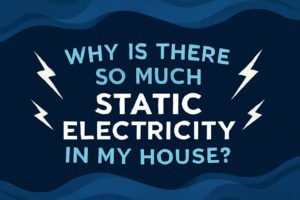If you’ve ever asked, “Why is there a HUD lien on my house?”, you’re not alone. Many homeowners find themselves puzzled and concerned when they discover this federal lien on their property. This article dives deep into the topic, offering you 7 crucial facts to fully understand HUD liens, why they appear, and what you can do about them.
A HUD lien is a specific kind of federal lien placed by the U.S. Department of Housing and Urban Development (HUD). It’s often tied to FHA loans or situations involving unpaid debts connected to federally insured mortgages. Understanding how this lien works is critical to protecting your home, your credit, and your financial future.
What Is a HUD Lien?
A HUD lien is a legal claim against a property that the Department of Housing and Urban Development files when certain debts are owed. This lien essentially acts as a security interest to ensure the federal government can recover money related to FHA-insured loans or other HUD programs.
HUD liens often appear when a homeowner defaults on an FHA-insured mortgage or when HUD incurs costs due to foreclosures or other actions related to your property. This lien remains on your home’s title until the debt it represents is fully paid.
How Does a HUD Lien Get Placed on a Property?
Federal Housing Administration (FHA) Loans and Liens
Most HUD liens are linked to FHA loans. When homeowners take out FHA-insured mortgages, HUD backs the loan to protect lenders. However, if the borrower stops paying or defaults, HUD may step in to cover losses. HUD then files a lien on the property to recover these costs.
Delinquent Payments and HUD Liens
If you fall behind on your FHA mortgage payments or if HUD has paid claims due to foreclosure or other financial issues, HUD can file a lien to secure repayment. The lien becomes a claim on your home’s title, restricting your ability to sell or refinance without addressing the lien first.
Impact of a HUD Lien on Homeowners
Restrictions on Selling or Refinancing
One of the immediate effects of a HUD lien is that it can block your ability to sell or refinance your property. Title companies often refuse to clear the title if a HUD lien exists, meaning you must resolve the lien before moving forward with any transaction.
Credit Score and Financial Consequences
Though a HUD lien itself may not directly show on your credit report, the underlying missed payments or defaults leading to the lien will likely damage your credit score. This can limit your financial options and make future borrowing more difficult.
How to Check If There Is a HUD Lien on Your Property?
Using County Records and Title Companies
Your local county recorder’s office keeps records of all liens and encumbrances on properties. Visiting or contacting them can help you determine if a HUD lien is attached to your home.
Title companies are also invaluable for checking liens during real estate transactions. You can order a title search to confirm lien status.
Online Tools and HUD Resources
HUD and various government websites provide online tools for lien verification. You can check with the HUD website or use trusted third-party services to see if your home has a lien.
Steps to Remove a HUD Lien from Your House
Paying Off the Debt
The most straightforward way to remove a HUD lien is to pay the outstanding debt in full. Once the debt is settled, HUD will release the lien, clearing your title.
Negotiating with HUD
Sometimes, HUD may allow a payment plan or partial settlement. It’s worth contacting HUD’s local office to discuss your options and negotiate terms.
Legal Help and HUD Lien Removal
If you’re unsure about how to proceed or face difficulties, consulting a real estate attorney or a HUD-approved housing counsellor can provide guidance and representation in lien removal efforts.
Preventing HUD Liens: What Homeowners Should Know
Avoiding a HUD lien starts with proactive financial management. Staying current on your FHA mortgage payments and communicating promptly with your lender or HUD if issues arise can prevent liens.
Also, be aware of all financial obligations related to your home, including property taxes and insurance, to keep your title free of federal claims.
Frequently Asked Questions (FAQs)
Can a HUD lien be removed if I refinance my home?
No, refinancing cannot bypass a HUD lien. The lien must be resolved before refinancing.
How long does a HUD lien stay on my property?
A HUD lien stays until the debt is fully paid or legally resolved.
Does a HUD lien affect my credit score?
The lien itself might not, but missed payments or defaults causing the lien can harm your credit.
Can HUD foreclose on my home because of a lien?
HUD can initiate foreclosure if mortgage payments are delinquent, which may lead to a lien.
Are HUD liens public records?
Yes, they are recorded publicly with county records.
How do I contact HUD about a lien on my property?
You can contact the local HUD office or visit the official HUD website for guidance.
Conclusion: Protecting Your Home from HUD Liens
Discovering a HUD lien on your house can be intimidating, but with the right knowledge and action, you can protect your property and finances. Understanding why the lien is there, how it impacts your home, and the steps to remove or prevent it are vital. Stay informed, communicate early with lenders or HUD, and seek professional help when necessary to keep your home safe.











